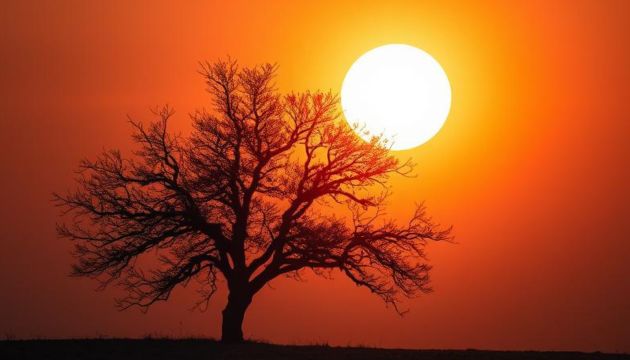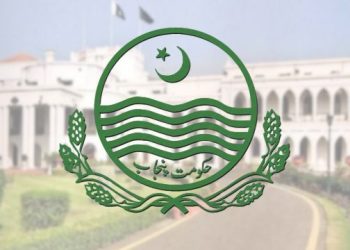RAWALPINDI: In Punjab, the Provincial Disaster Management Authority (PDMA) has issued a heatwave alert, asking commissioners and deputy commissioners across the province to stay alert and prepared.
PDMA Director General Irfan Ali Kathia instructed departments like school education, health, transport, local government, and Rescue 1122 to take necessary steps. These steps include providing clean drinking water in public places and ensuring hospitals and mobile units are ready with first-aid supplies.
The PDMA advised people to look after children, the elderly, and outdoor workers, avoid unnecessary travel during the hottest afternoon hours, wear light-colored clothes, and cover their heads when outside.
The PDMA also emphasized using water carefully in all sectors and encouraged people to stay updated with further announcements.
Last month, the National Institute of Health (NIH) issued a heatstroke advisory, asking public and private hospitals to prepare for more heat-related illnesses. The advisory explained that climate change and global warming are increasing the number of extreme heat events in Pakistan, causing more health issues and deaths.
The World Health Organization (WHO) has noted that climate change affects human health, including more frequent and intense heatwaves. Pakistan has faced serious heatwaves in recent years, leading to significant health problems and deaths.
Pakistan’s healthcare system struggles to handle these events, especially in rural and underserved areas. Heat-related illnesses affect vulnerable groups like the elderly, children, and people with existing medical conditions the most.
The NIH stated that its advisory aims to prepare healthcare authorities to take timely actions to prevent and manage heatstroke. Infants, elderly people, those with certain health conditions, athletes, pregnant women, and outdoor workers are at higher risk for heatstroke.
If someone shows signs of heatstroke, they need professional medical help right away. The most important step is to lower their body temperature. Move them to a shaded area, remove extra clothing, and apply cool, tepid water to their skin while wetting their remaining clothes with water.
If the person can drink, give them plenty of cool water or other non-alcoholic, caffeine-free beverages. Maintain intravenous fluids if needed, and hospitalize the person if necessary.
Below is a rephrased version of the provided text in simple English, covering all paragraphs with details, followed by a guide table to protect from heatwaves, as requested. The table incorporates practical advice from the original text and additional measures based on standard heatwave safety guidelines, tailored to the context of Pakistan’s heatwaves.
ALSO READ | Summer vacation dates for Punjab schools likely to be revised due to heat
In Punjab, the Provincial Disaster Management Authority (PDMA) issued a heatwave alert, asking commissioners and deputy commissioners across the province to stay ready.
PDMA Director General Irfan Ali Kathia directed departments like school education, health, transport, local government, and Rescue 1122 to take steps. These include providing clean drinking water in public places and preparing hospitals and mobile units with first-aid supplies.
The PDMA advised people to care for children, the elderly, and outdoor workers, avoid travel during the hottest afternoon hours, wear light-colored clothes, and cover their heads when outside.
The PDMA also stressed using water wisely in all sectors and encouraged people to stay informed about updates.
Last month, the National Institute of Health (NIH) issued a heatstroke advisory, urging public and private hospitals to prepare for more heat-related illnesses. It noted that climate change and global warming are increasing extreme heat events in Pakistan, causing more health issues and deaths.
The World Health Organization (WHO) stated that climate change affects health, with heatwaves becoming more frequent and intense. Pakistan has faced serious heatwaves in recent years, leading to many health problems and deaths.
ALSO READ | Govt plans 4% sales tax on Careem, InDrive, Yango rides in Islamabad
Pakistan’s healthcare system struggles to handle these events, especially in rural and underserved areas. Heat-related illnesses affect vulnerable groups like the elderly, children, and those with existing health conditions the most.
The NIH said its advisory aims to help healthcare authorities act quickly to prevent and manage heatstroke. Infants, elderly people, those with certain health conditions, athletes, pregnant women, and outdoor workers are at higher risk.
If someone shows signs of heatstroke, they need immediate medical help. The key step is to lower their body temperature. Move them to a shaded area, remove extra clothing, and apply cool water to their skin while wetting their remaining clothes.
If the person can drink, give them plenty of cool water or non-alcoholic, caffeine-free beverages. Use intravenous fluids if needed, and take them to a hospital if necessary.
Step by Step Guide How to Protect from Heatwaves
| Action | Details |
|---|---|
| Stay Hydrated | Drink plenty of cool water or non-alcoholic, caffeine-free beverages regularly, even if not thirsty. Avoid sugary or caffeinated drinks, as they can dehydrate you. Carry a water bottle when outside. |
| Avoid Peak Heat Hours | Stay indoors or in shaded areas between 11 AM and 4 PM, when temperatures are highest. Limit unnecessary travel or outdoor activities during this time. |
| Wear Appropriate Clothing | Wear loose, light-colored, and lightweight clothing. Use a hat, cap, or scarf to cover your head when outdoors to protect from direct sunlight. |
| Protect Vulnerable Groups | Check on children, elderly people, and those with health conditions frequently. Ensure they stay cool and hydrated. Outdoor workers should take breaks in shade and drink water often. |
| Stay in Cool Environments | Use fans, air conditioning, or visit public places like cooling centers if available. If at home, keep windows and curtains closed during the day to block heat. |
| Use Water Wisely | Conserve water by avoiding wasteful use, as shortages are common during heatwaves. Take short, cool showers to lower body temperature. |
| Recognize Heatstroke Signs | Watch for symptoms like high body temperature, confusion, dizziness, nausea, or no sweating. If these occur, act quickly to cool the person and seek medical help. |
| Cool Down Heatstroke Victims | Move the person to a shaded or cool area, remove extra clothing, and apply cool, wet cloths to their skin. Fan them and give cool water to drink if they are conscious. Call Rescue 1122 or seek hospital care immediately. |
| Prepare Your Home | Ensure proper ventilation, use reflective window covers, and avoid using heat-generating appliances like ovens during the day. Stock up on water and emergency supplies. |
| Stay Informed | Monitor weather updates from the Pakistan Meteorological Department or PDMA for heatwave alerts. Follow local authority guidelines for safety measures. |
Pakistan is preparing for its first heatwave of the season, with the Pakistan Meteorological Department (PMD) stating that temperatures across most of the country will rise above normal levels starting Thursday and lasting three to four days.
The PMD says a high-pressure system will affect most parts of Pakistan from May 15 to May 20. In the southern regions, including Sindh, southern Punjab, and Balochistan, daytime temperatures are expected to be 4 to 6 degrees Celsius higher than usual during this period.
In central and upper Punjab, Islamabad, Khyber Pakhtunkhwa, Azad Jammu and Kashmir, and Gilgit-Baltistan, temperatures are likely to be 5 to 7 degrees Celsius above normal from May 15 to May 19.
A westerly weather system is expected to reach the upper parts of the country on the evening or night of May 19. This may bring rain, wind, thunderstorms, and some heavy rain or hailstorms in Azad Kashmir, Islamabad, the Pothohar region, northeast Punjab, upper Khyber Pakhtunkhwa, and Gilgit-Baltistan on May 19 and 20.
The PMD has asked people, especially children, elderly citizens, and women, to take care during the heatwave by staying out of direct sunlight and drinking plenty of water.
Farmers are advised to adjust their farming activities and protect livestock. The high temperatures in northern areas may cause snow to melt faster, which could increase water levels in rivers. Authorities have been asked to stay alert and take steps to prevent any problems caused by the heat.
Heatwaves Claim Hundreds of Lives in Pakistan in Recent Years
In recent years, extreme heatwaves in Pakistan have caused the deaths of hundreds of people. Rising temperatures and climate change have made life difficult, especially in parts of Sindh and Punjab where the heat has reached dangerous levels.
Deaths Due to Heatwaves in Recent Years:
2022: In June, temperatures in Jacobabad and Nawabshah (Sindh) rose to 50°C. Over 150 people lost their lives due to the intense heat.
2021: In Karachi, more than 80 people died during May and June due to severe heat and long hours of power outages.
2018: A heatwave in South Punjab and Sindh claimed more than 65 lives, mostly children and elderly people.
2015: Over 1,200 people died due to a deadly heatwave across Pakistan, with Karachi being the worst-hit city.
Health experts are urging the public to stay hydrated, avoid going out during peak heat hours, and take extra care of children and older adults during heatwaves.














